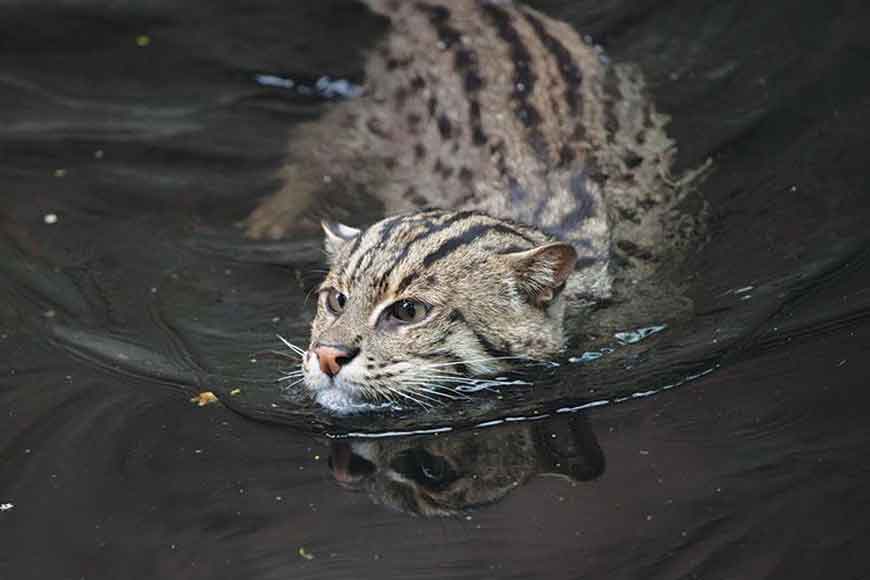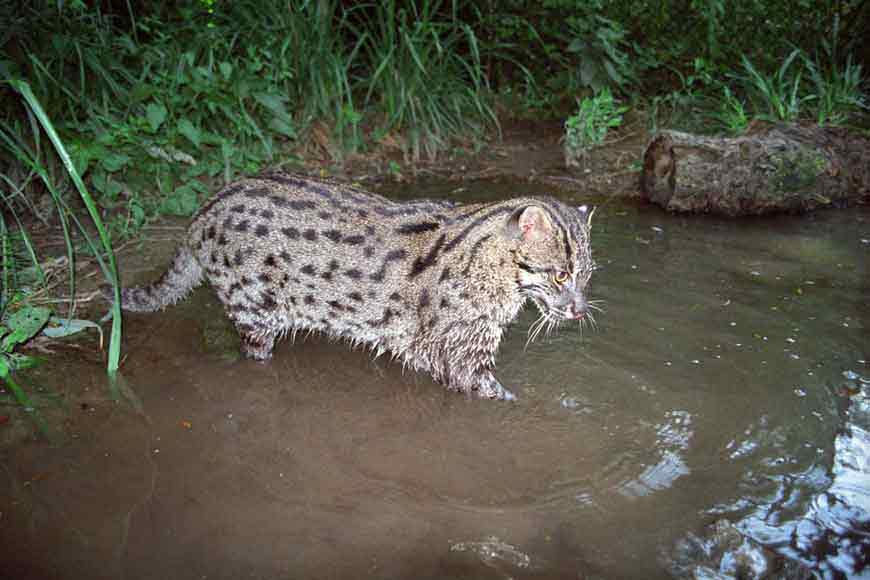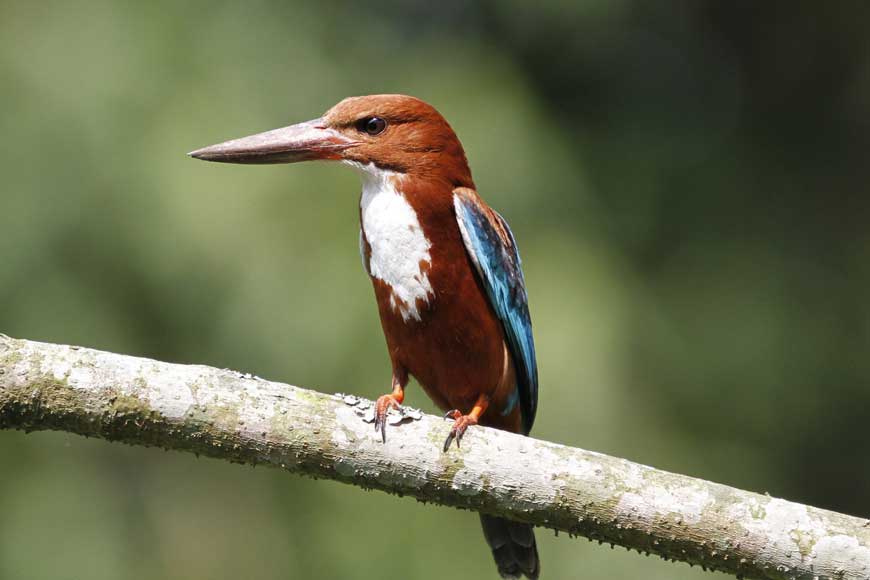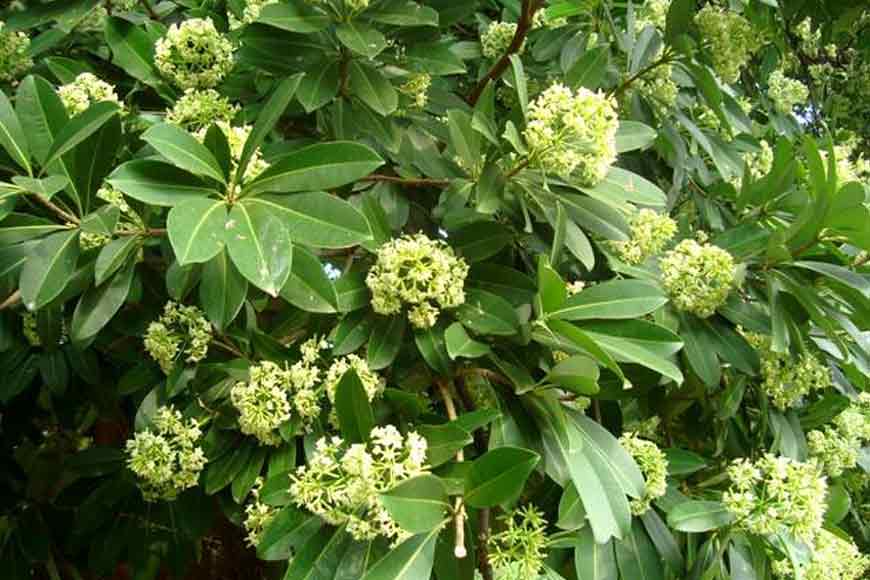West Bengal generates environmental awareness by adopting endangered species as State Symbols

Diptarka Ghosh is a research scholar in Zoology and a passionate environmentalist
West Bengal might be a small state in size, but it is home to about 12.27% of the Indian biodiversity that is known till date. According to the State of Forest Report, 2019, West Bengal has a recorded forest cover of 16,901.51 sq. km, which accounts for about 19.04% of the State’s geographical area. The State has 6 National Parks, 16 Wildlife Sanctuaries, 5 Conservation Reserves, 2 Tiger Reserves, and 1 Biosphere Reserve. And that’s big considering the depleting forest reserves in most other parts of India.
But the major concern is how to save and protect this natural biosphere. To do so West Bengal Forest Department has introduced since ages the practice of honoring and symbolizing the different floral and faunal icons of the state to generate consciousness among the people about the incredible natural wealth and making them aware of their responsibilities to conserve the rich diversity.
 Fishing Cat
Fishing Cat
Take for example our state animal, the Fishing Cat or Baghrol, popularly known as Mechho Beral in rural Bengal. It is a medium-sized wild cat that inhabits the wetlands, lakes, swamps, and mangroves in different parts of Bengal, but they are sighted still in large numbers in Panchla and Domjur areas of Howrah District, Dankuni in the Hooghly District, and the Sundarbans. The Fishing Cat is primarily a nocturnal species and its diet mainly consists of fish, crabs, small rodents, birds, insects, reptiles, and hard-shelled freshwater mollusks.
Also read : Rare ghost fungus spotted in Bengal
The State Government recognises the Fishing Cat is facing terrible threat today, primarily due to destruction of wetlands and by the pollution and depletion of the water bodies. In the last 15 years, about 44% of the wetlands have been lost in the state of West Bengal. With the rapid destruction of the wetlands, the fishing cats encroach into the surrounding areas to hunt for their food. Since it primarily preys on fish, they also often face retaliatory killings by the villagers and pond owners. Though the elusive Fishing Cat has been listed as ‘Vulnerable’ by the International Union for the Conservation of Nature on its Red List of Threatened Species and protected under Schedule I of the Wildlife Protection Act, 1972 and under Appendix II of CITES, today their numbers are dwindling and during Pandemic Lockdown, there are reports of them entering human habitation and being killed.
 White Throated Kingfisher
White Throated Kingfisher
West Bengal also protects its avian species including the White-Throated Kingfisher, that is the State Bird. They are primarily diurnal species and their diet includes small amphibians, crabs, small rodents, reptiles, etc. The West Bengal government has ensured the white-throated kingfisher is listed in Schedule IV of the Wildlife Protection Act, to protect their habitat and population. Not just fauna, West Bengal is careful about the trees and green cover, declaring Chhatim, the favourite tree of Rabindranath Tagore as the State Tree. Known as Saptaparni, this tree has tremendous medicinal values, and its bark is used as a traditional medicine to treat diarrhea, dysentery, asthma, etc. The blackboards, slates, and writing tables of students are also made from the bark of the tree. The branches of the tree also provide favourable breeding sites for the wild bees to make their hives.
 Chhatim
Chhatim
 Shiuli
Shiuli
The Saptaparni is also of great cultural significance as traditionally its leaves were awarded to scholars and teachers by the Chancellor during convocation ceremonies by the Visva-Bharati University. However, due to environmental degradation, this practice has been reduced to handing over a single leaf to the Vice-Chancellor of the University. Today we find replantation drives along the boulevards of Kolkata and its surroundings with the sturdy Chhatim trees that withstand most Kalbaishakhi unlike the Gulmohar trees. Hence they are trees of choice. Just like Chhatim, West Bengal has declared Shiuli as the State Flower keeping in mind its relation with our largest celebration -- Durga Puja during autumn.










